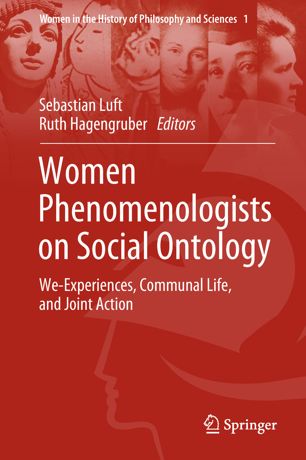

Most ebook files are in PDF format, so you can easily read them using various software such as Foxit Reader or directly on the Google Chrome browser.
Some ebook files are released by publishers in other formats such as .awz, .mobi, .epub, .fb2, etc. You may need to install specific software to read these formats on mobile/PC, such as Calibre.
Please read the tutorial at this link: https://ebookbell.com/faq
We offer FREE conversion to the popular formats you request; however, this may take some time. Therefore, right after payment, please email us, and we will try to provide the service as quickly as possible.
For some exceptional file formats or broken links (if any), please refrain from opening any disputes. Instead, email us first, and we will try to assist within a maximum of 6 hours.
EbookBell Team

4.0
96 reviewsThis edited volume examines women's voices in phenomenology, many of which had a formative impact on the movement but have be kept relatively silent for many years. It features papers that truly extend the canonical scope of phenomenological research. Readers will discover the rich philosophical output of such scholars as Edith Stein, Hedwig Conrad-Martius, and Gerda Walther. They will also come to see how the phenomenological movement allowed its female proponents to achieve a position in the academic world few women could enjoy at the time.
The book explores the intersection of social ontology, phenomenology, and women scholars in phenomenology. The papers offer a fresh look at such topics as the nature of communities, shared values, feelings, and other mental content. In addition, coverage examines the contributions of Jewish women to the science, who were present at the beginning of the phenomenological movement. This remarkable anthology also features a paper on Gerda Walther written by Linda Lopez McAlister, former editor of the feminist journal Hypatia, who had met Walther in 1976.This book features work from the conference “Women Phenomenologists on Social Ontology,” held at the University of Paderborn. Overall, it collects profiles and analysis that unveil a hidden history of phenomenology.